#vocabulary lessons
Explore tagged Tumblr posts
Text
it's time to move "vocabulary mixup lessons with sao" from twitter to tumblr!
today's common fanfic fuckup that slays the man:
flout: to disobey or avoid
flaunt: to loudly/ostentatiously display
these two are very disconcerting to see mixed up!! you don't USUALLY "flaunt" the rules, and you certainly don't "flout" your new outfit!
685 notes
·
View notes
Text
Больной vs Болезненный
Боль in Russian means "pain".
There are two different adjectives that are related to боль - one is for somebody or something that is experiencing pain, and the other is for something that causes pain.
Больной (adjective) - 1) sick, ill; 2) aching, bad (about a tooth, for example) 3) weak 4) sensitive == someone or something that is in pain
Болезненный - painful, traumatic, painstaking == something that causes pain
Examples:
Больной ребёнок не должен ходить в школу. A sick child should not go to school.
2. Моя больная нога не дала мне уснуть. My bad leg didn't let me sleep.
3. У тебя больной вид - иди домой! You look sick, go home!
4. Это больной вопрос для нас, не будем говорить об этом. It is a sensitive topic for us, let's not talk about it.
5. Школа - это болезненный опыт для многих подростков. High school is a painful experience for many teens.
6. Это болезненная процедура, нужна анастезия. It's a painful procedure, you need anaesthesia.
It was your random Russian word formation/ vocabulary lesson.
47 notes
·
View notes
Text

bit of homework (plural bits of homework). (Britain, slang) meaning an attractive woman.
Synonym: piece of homework
Tbh, I’ve always had a thing for Jakes, too.
#endeavour morse#itv endeavour#shaun evans#vocabulary#a way with words#endeavour pbs#jack laskey#peter jakes#inspector morse#morseverse#english lesson#i think i have a thing for him too
43 notes
·
View notes
Text
vocab list: 미술
그림: painting, picture, drawing, sketch, illustration
페인팅: painting (영어)
페인트칠: painting (한국어)
그리다: to paint, draw, sketch a picture
끌다: to pull, draw/attract (someone's attention)
긋다: draw a line
만들다: to make (a movie, book, song), produce, direct (a movie), compose (a song)
사진: picture, photo
영화: picture, video, movie, film
영상: picture, video, image (shown on a screen)
화면: picture, image (space filled by a photo)
그림자: shadow, silhouette, reflection (on a mirror/water)
그늘: shade, dark part
미행: shadowing (secretly following someone to keep an eye on them or get evidence)
느끼다: to feel (experience an emotion in one's mind), realize, being aware of
기분: mood, feeling, atmosphere (the situation surrounding)
감정: emotion, feeling (towards a certain incident or person)
도자기: pottery, ceramics, chinaware (도기 is a bowl made of clay, and 자기 is baked at a higher temperature-1200°C-)
도예: abbreviation of '도자기 공예' -ceramic arts-
도기: pottery, earthenware
회: raw fish, round (ONLY when it's added to a number, aka a counter)
둥근: round, spheroid
차례: order, turn
계속: continuosly, consecutively
형태: shape, form, figure, appearance (of an object)
모양: shape (outer appearance/aspect) -mostly used-
형성하다: to form, build, develop a certain character or form
생기다: to be formed, come into being (something that didn't exist to come into existence)
예술: art (very broad sense, including music, painting, sculpture, architecture)
미술품: art work, fine art, work of art
미술: art (painting and sculpture)
기술: technology, skill, technique
닦다: to clean, scrub, wipe
양치: brushing teeth
붓: writing/painting brush
빗다: to brush/comb one's hair
비디오: video
텔레비전: TV
녹화: video, record, tape, videotape
무비: movie
원: circle; ₩
돌다: to turn, rotate, spin; to go around, circle
그룹: group, a circle (of people)
사회: society, circle
잉크: ink
서명하다: to sign
서명: signature, autograph
먹물: black ink (ink + water), squid ink
광장: square, plaza
사각형: square, quadrangle, tetragon, quadrilateral
평방: square (ej metros cuadrados)
제곱: square (of -maths-)
네모: square
조각: piece (of), slice; sculpture, statue
작품: piece (of music), work (of art); product, production
부분: piece, part, section, portion
하나: one, piece
하나씩: one by one, one at a time, piece by piece
일부: some/any part, portion, section, partially, partly
즐기다: to enjoy (oneself), have fun
하세요: do it, allowing someone to do something
누리다: authority to enjoy what you have in life; to enjoy someone's rights or benefits
즐겁게: delightfully
재미있다: funny, interesting, amusing, entertaining
점토: clay
진흙: mud
춤: dance (dynamic, b-boing, -방탄소년단-)
무용: dance (soft movement -ballet-)
추다: to dance
페인트: paint (pintura)
칠하다: to paint, coat, varnish
물감: paint, dye (to draw a picture or dye cloth)
색칠하다: to paint, color (something)
크레용: crayon
~을 크레용으로 그리다: to draw with crayons
~을 사생하다: to draw exactly as it is (not used in conversational korean)
주변 경치를 사생하다: draw exactly how it is viewed
사생대회: drawing/painting contest
납작한: flat (to be)
평면: plane/flat surface
아파트: flat, apartment
시시한: flat, petty, small minded; insignificant, trivial
한 푼 없는: have no money
포스터: poster
영화계: the film world (-hollywood-)
박막: a thin film (anatomical jargon)
촬영: shooting, filiming
필름: film (영화 필름, 카메라 필름, 휴대폰 액정보호 필름, etc)
행동하다: to act, behave
법률: law, act, legislation
연기하다: to act, perform (personality, behavior, etc of a role); to delay, postpone
행위: act, action (with intention, will)
대행하다: to do something for someone
source: 영단어는 관리다 app

#study#korean#koreanlanguage#koreanstudy#koreanstudying#한국어#한국어연습#한국어공부#한국어공부중#한국어배우기#korean language#한국어 배우기#한국어 공부하기#korean learning#korean langblr#learn korean#korean lesson#korean words#korean voca#korean vocabulary list#korean vocab#korean vocab list#korean vocabulary#한국어 단어#한국어 배우다#한국어 공부#한국어 어휘
335 notes
·
View notes
Text
Korean Weather Vocabulary
Watch my lesson on weather in Korean: https://www.youtube.com/watch?v=D0V_FJsVzkI
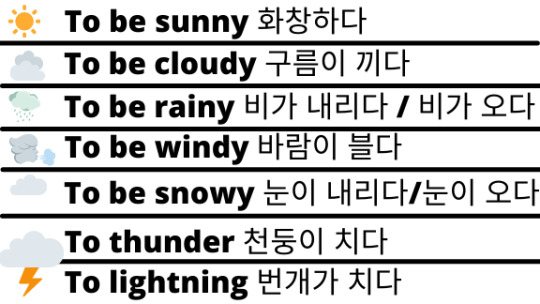
#korean lesson#learn korean#korean#korean vocabulary#korean vocab list#korean vocab#beginner Korean#beginner korean lesson#Korean language#language learning#learning korean#languageblr#language study#langblr#weather in Korean
58 notes
·
View notes
Text
I love love love that the ccs will be forced to use the translator in order to communicate with the new ccs joining qsmp because that’s what it’s there for!!!!! it’s a translator!!! use it to translate, even if both of you are able to speak the same language!
I don’t see enough people use the translator, especially when the ccs are both able to speak (usually) english, and it’s still great that they can speak easier if they speak the same language, but the language barrier is one of the causes for the creation of the qsmp! Let the language barrier be a barrier in the first place, and let the translator do the work it was meant to do!
Let people who physically can’t speak the same language interact! It’s part of what makes qsmp qsmp, and even though it has impacted hugely just from adding people who generally create content and talk in different languages, I do think it somewhat lacks in the people speaking different languages category, because while that is true, it is also somewhat untrue in that all of the ccs can speak one of the same language (usually english), even if they’re not a natural at it!
Now, that’s not a bad thing at all! But, it does blur the speaking different languages problem that was meant to occur in qsmp. They speak different languages! Let them speak whatever language they want and let the translator do the work! Again, that is what it is there for! It is a translator! (I’m looking at you twitter)
And even if it takes a million repeats of the same sentence for someone to finally get what another person is trying to say, a hundred fuck-ups of the translation or a thousand language barrier/cultural miscommunications, again, qsmp was made for this to happen! It was made so people who come from different backgrounds and are usually unable to interact because of cultural/language barriers can interact, whether it start out negative or positive!
And I trust them (the ccs and fans) to communicate if controversy/confusion happens culturally and language-wise, and (hopefully) for the fans to not turn anything minor** into a huge drama, so I am extremely excited to see the ccs be forced into using the translator!
#I love love love when people use the translator so much like YOU CAN SPEAK DIFFERENT LANGUAGES AND STILL UNDERSTAND EACHOTHER#I just find it so fucking cool as someone who can only speak english fluently#qsmp#qsmp 2024#I love hearing people talk in their native langauges even if I don’t understand shit it’s like woah you can speak and understand this whole#vocabulary without a second thought and I can’t??? Speak to me more in hopes that I will someday because I WANT TO#I want to learn languages so bad but I am caught between two to learn first because i cannot speak my own secondary language that more than#50% of my relatives CAN so I’m like I should learn that first but also spanish french and portuguese is RIGHT THERE and the one I should#learn first is so much harder to learn because of accessibility to lessons and just people who can teach it in general and also school lol#I’m not gonna say the language because I’m 90% sure nobody will know what it is but it is a tonal language which makes it much harder to#learn
32 notes
·
View notes
Text

Learn how to talk about remembering and memory in English
#learn english#learn english online#skype english lessons#idioms#collocations#useful phrases#vocabulary
7 notes
·
View notes
Text
allude vs. elude
Allude is a verb that means "to speak of or mention something or someone in an indirect way," as in "they alluded to difficulties at their former school." You might remember this because it starts with the letter A, and alluding to evidence in a school paper with get you an A.
Elude is a verb that most often means "to avoid or escape someone or something by being quick, skillful, or clever," as in "a criminal who has eluded capture." It is also used to mean a fact that you cannot remember, as in "His name eludes me." You can remember this because elude starts with E like escape.
Check out this article for more about these two words.
From Merriam-Webster's List of Most Commonly Confused Words
#merriam webster#language lessons#language learning#english vocab#english language#english learning#learn english#langblr#english#languages#language stuff#vocabulary
10 notes
·
View notes
Text
Ukrainian 101, Lesson 39 : Back to School
Школа - shkola - school
Університет - ooneeversytet - university
Семестр - semestr - semester
Навчальний рік - navchalnyi reek - academic year
Урок - oorok - lesson (at school)
Пара - para - lesson (at university or college)
Перерва - pererva - break
Іспит, екзамен - eespyt, examen - exam
Есе - esse - essay
Підручник - peedroochnyk - textbook
Викладач - vykladach - university or college 'teacher', professor
Вчитель - vchytel - school teacher
Професор - professor - professor
Спеціальність - spetsialneest - major
Олімпіада - olimpiada - olympiad

#ukrainian language#ukrainian#ukrainian101#ukrainian lesson#ukrainian vocabulary#learning languages#language learning#ua lang#ukraine#langblr#slavic languages#learnsomethingneweveryday#learning#self studying#polyglot#Language blog#foreign languages#learnukrainian#learn ukrainian#backtoschool#back to school
40 notes
·
View notes
Text




Dreamy: dream•y (drē-mē) - adjective. Meaning - 1. Kim Taehyung. 2. magical; having an unreal quality.
Similar: dreamlike, romantic, alluring, gorgeous, otherworldly, will never be yours because he’s Jungkook’s boyfriend.
Example of dreamy in a sentence: “Kim Taehyung is dreamy as fuck.”
7 notes
·
View notes
Text
Language Learning Recommendation: Wikipedia
⎯⎯⎯⎯⎯
This is something I only realized I could use more recently and I haven't seen someone mention it so I thought I should; Wikipedia can be a great resource to learn specific vocabulary and can be really helpful if you are pursuing a translation specialty like medicine or politics as Wikipedia has endless amounts of articles about those topics. (Sometimes Wikitionary will also have definitions for things you are looking for as well)
We all know that Wikipedia is full of information in English but has thousands of articles in other languages as well. On English articles all you have to do to change the language is select the language button at the top right of the screen and select another language. However, not every wikipedia article is translated from English, and some articles exist without an English translation. Also, even though there are many translated articles, many will not be an exact 1:1 translation and can be missing a lot of information but it is a very good tool when wanting to learn the meaning of words that might not be in an online dictionary.
For example: Here is the article "First Secretary of State" in English:
⎯⎯⎯⎯⎯
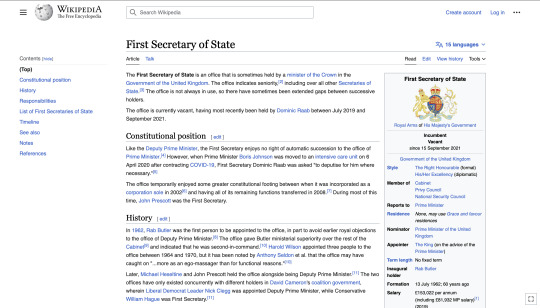
⎯⎯⎯⎯⎯
In the top right corner you can see a tab that says "15 languages", this clearly means that there are 15 different languages to choose from that the article is translated into. (On another article the number will change depending on how many languages it has been translated into, of course)
⎯⎯⎯⎯⎯

⎯⎯⎯⎯⎯
Now, if you click this button and select Chinese, the page will look like the picture below. This clear as day has shown me now that the correct word for "First Secretary of State" in Mandarin would be "首席大臣" and it also states the English version of the word in the translated article although some articles may be missing this function. ALSO, if you find an article in Chinese or another language first, the language tab is on the bottom left corner instead of the top right.
⎯⎯⎯⎯⎯
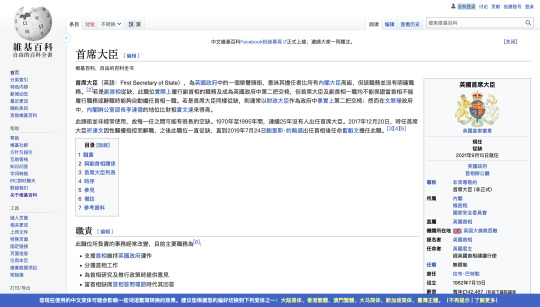
⎯⎯⎯⎯⎯
To find how to pronounce the Mandarin words you find (that aren't already in online dictionaries) in Mandarin you can use websites like MDBG or Chinese Converter that will show you individual pronunciations for characters. Even Google Translate is quite reliable for pinyin but in Chinese Converter and Google Translate sometimes they do not pick up characters with multiple pronunciations correctly or ignore tone change rules.
For Japanese you can use websites like Nihongo Dera's Kana Converter or Jisho to figure out pronunciations.
I could make a whole post in itself for how to figure out pronunciations for words in languages you don't natively speak so I'll stop here.
I hope this post helps someone :)
⎯⎯⎯⎯⎯
#language learning recommendation#recommendation#language resources#language reference#language resource#language learning resources#language learning#vocab list#vocabulary#vocabulary lesson#learning resources#learning reference#learn mandarin#mandarin learning#translation studies#wikipedia#fun facts#learn languages#foreign languages#language study#study resources
80 notes
·
View notes
Text
Mon journal français

"L'affirmation et la négation" class
aAfirmative and negative sentences (excercises)
Translated one book Page "Le Petit Prince"
#[🥐]'`Aujourd'hui#french#français#french language#french learning#french lessons#french vocab#french vocabulary#language learning#languages#learning french
19 notes
·
View notes
Text
the way i can see ted following in his father's footsteps after that finale
Edit: ok I've had some sleep and took some time and I don't actually think that. I still agree with the tags though
#he was not happy. HE WAS NOT HAPPY#he never learned the lesson they kept hitting us over the head with. that he needed to let people in and accept help#which was said by his mum in the pub and sorta referenced when higgins said that the way to grow as a person was to accept help#the last two episodes only emphasized the way richmond was where he belonged. he was integrated with the community he had a support system#he knew the vocabulary he finally understood football#“they say there's no place like home but there's no place like richmond”#and then he just. leaves.#he arrives to the sound of a song about a father pushing social morms and conformity onto his kid#and the show closes with his face. hes smiling but it doesn't reach his eyes.#the final song is about a person who has never been brave enough to fight for what the wanted#hes coaching a little league football team. emulating to same thing he did in richmond. and it feels empty#it feels fake. like the idyllic suburban neighborhood#compared to the bright community of richmond#fuck#ted lasso spoilers#ted lasso
48 notes
·
View notes
Text
erm.


#this is the first lesson guys#how am i supposed to know this.#I DONT EVEN KNOW THE SENTENCE STRUCTURE#OR ANY VOCABULARY WORDS.#babble is ass#0/10 😿#kats chattin shit
5 notes
·
View notes
Text
vocab list: 신체
눈: eye, eyeball, eyesight; snow; gradation, marking, graduation
시선: one's eyes, graze, eye-catching
안구: eyeball
쳐다보다: to look up, look/stare (at), gaze (at)
눈길: to watch something/someone; street made of snow stick
귀: ear
청각: sense of hearing
청력: hearing (hearing capability that can get lost with the years)
이삭: ear, head of the rice, barley, etc where a flower opens and the fruit comes from
눈썹: eyebrow
눈사을 찌푸리다: to frown
심장: heart
마음: heart, mind, personality
가슴: heart, chest, breast, bust, boobs
중심: center, heart, middle; focus, nucleus, core; emphasis, importance
머리: head, hair; brain, mind, intelligence
지도자: leader, head (of)
머리카락: hair
털: hair, fur, heather, fluff
섬유: fiber, textile
목: neck, throat
몸: body (pure korean)
신체: body, physical (chinese derived, used more in formal situations)
단체: organization, association, society, group, party
시체: dead body, corpse
몸매: body figure/shape
무릎: knee
무릎치기: idiomatic expression meaning to figure sth out/to realize; knee breenches (male pants that go to the knees)
무릎으로 치다: hit with the knees
발: foot, paw, step
걷다: to walk
기슭: foot, base, border, edge (mountain, hill, river, etc)
보병: foot soldiers, infantry (play the main roles in the army, move by foot and attack enemies with rifles, etc)
발가락: toe
발끝: tiptoe
손: hand
주다: to give (an item to someone or a qualification, right, score)
도움: help, aid, assistance, support
반수: half of a number divided equally by 2
맡기다: to assign, charge (someone the responsibility for a certain role or work); entrust, leave something with
손가락: finger
지적하다: to point out, indicate, comment, criticize
손톱: (finger) nail
못: nail (clavo)
분석하다: to analyze
잡다: to hold (something in one's hand and not let it go); arrest, catch, capture (someone)
어깨: shoulder
책임을 지다: to assume/bear/shoulder/take the responsibility; hold oneself responsible for
갓길: side road for emergencies
얼굴: face
직면하다: to confront, face, come face to face with
표정: face expression
입: mouth, lips, one's taste
말: word, language, speech, talk
입구: entrance to/of, entry, way in
치아: tooth (humans and animals, hospitals use it)이tooth (expression for naming the different parts of the teeth, like molars; it's rarely used by itself)
톱니: tooth of a saw
코: nose
후각: sense of smell
팔: arm
무기: weapon, armaments
무장하다: to be armed, militarized
부문: section, field, division
팔걸이: armrest part of a chair
허벅지: thigh
source: 영단어는 관리다 app

#study#korean#koreanlanguage#koreanstudy#koreanstudying#한국어#한국어연습#한국어공부#한국어공부중#한국어배우기#korean language#한국어 배우기#한국어 공부하기#korean learning#korean langblr#learn korean#korean lesson#korean words#korean voca#korean vocabulary list#korean vocab#korean vocab list#korean vocabulary#한국어 단어#한국어 배우다#한국어 공부#한국어 어휘
161 notes
·
View notes
Text
Discourse over Super Smash Bros. Ultimate literally shaped a piece of internet vocabulary.
It started with "Scrimblo Bimblo" For those not in the know, fans of Smash Bros. are notorious for having a hatred for the Fire Emblem characters on the roster due to the fact that they occupy so many spots on the roster, half of them have playstyles that are derivative of Marth's moveset, and can kind of bleed together visually which earned them the "Anime Swordsman" moniker.

The arrival of characters like Shulk and Cloud only compounded the notion that too many "Anime Swordsmen" were taking up roster spots that could have been filled with more visually distinct or more nostalgic characters from other game genres, specifically platformers (and even more specifically, Crash Bandicoot, one of the biggest fan requests) One tweet however changed everything when it coined the phrase "Scrimblo Bimblo" a catch-all to describe platformer mascots as sort of a counter to "Anime Swordsman"

Scrimblo Bimblo caught on quick by frustrated JRPG fans who were tired of being talked down to and they finally had something that got under the skin of people who kept shitting on their favorites. The two sides fought back and forth until the DLC for Ultimate ended, but Scrimblo Blimbo ended up leaking into other sides of Twitter and Tumblr where it took on a whole new meaning outside of it's original origin
It somehow got twisted into "Skrunkly Scrimblo" which became sort of a term of endearment. It's meaning is flexible but seems to commonly used for "funny little guys" or something that's cute in an almost ugly or pathetic way
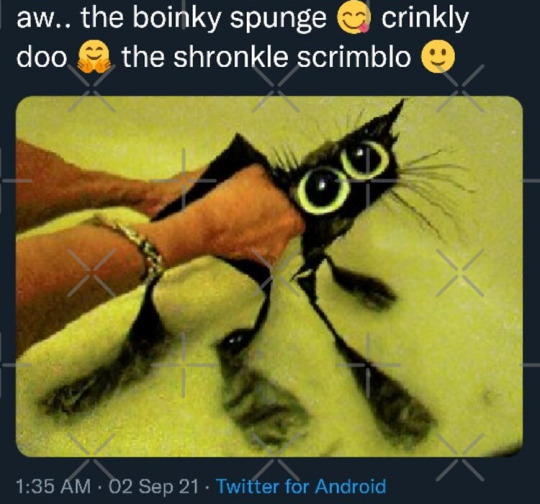
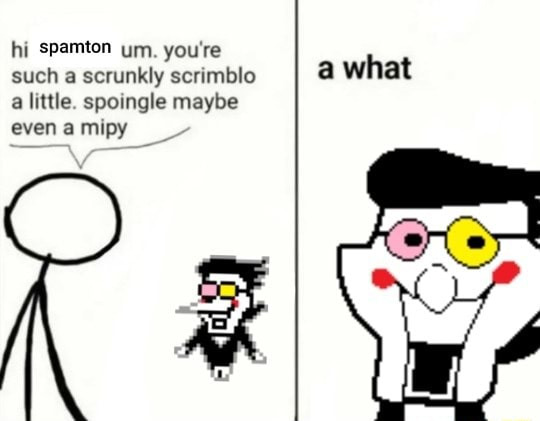
Eventually the Scrimblo was dropped from Skrunkly, and Skrunkly took over this specific definition And finally today, Scrimblo (without the Bimblo) has sort of made a resurgence, now has just become an overall term of endearment for not just a favorite character but for anything or anyone
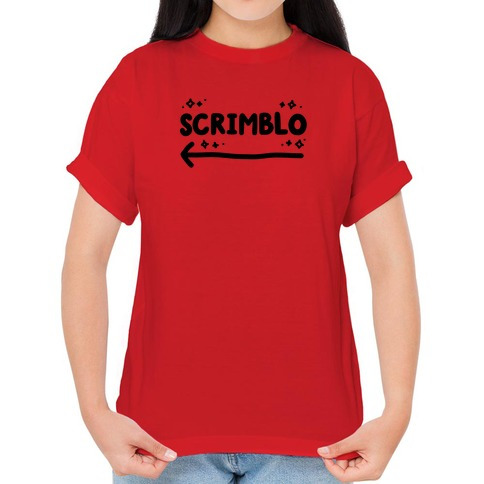
Isn't that interesting? A term born out of fandom bullying to put down a persons personal taste ended up circling back around to become a term of enjoyment and affection. And it came from the funny platform fighter that lets you kick Sephiroth's ass with Minecraft Steve
#Super Smash Bros.#Super Smash Bros. Ultimate#Minecraft#Final Fantasy 7#Sephiroth#Sakurai#Scrimblo#Scrimblo Bimblo#Skrunkly Scrimblo#Internet history#Internet Vocabulary#Fandom#Discourse#Fandom discourse#Internet history lesson#Fire Emblem#Marth#Lucina#Roy#Ike#Robin#Corrin#Byleth#Chrom
19 notes
·
View notes